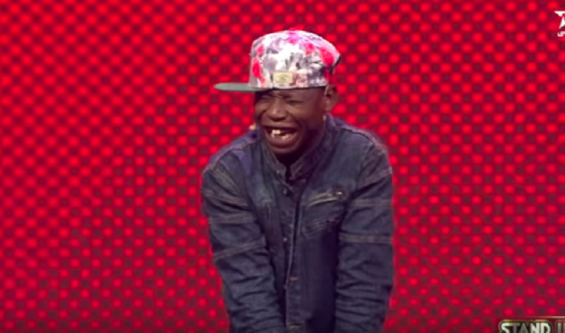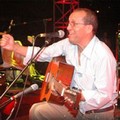Comedians source their jokes from stereotypes and prejudice linked to minorities. What do you think of the sketch delivered by a stand-up comedian nicknamed «Kahlouch» ?
I was extremely shocked because it was not just about the accent and gestures the stand-up comedian tried to mock but also about the perceived idea of how «black men» supposedly are : clumsy, slow, simple but prone to violence.
When he is confused he responds by headbutting people, a bit like an animal ; he is all talk but no action and he doesn't understand women.
WA ALLAH YN3EL DIN MO CHI FN F'HAD LBLAD pic.twitter.com/73CgyWJg8K
— Jean paul ساخط (le360 3iw3iw fermez la fenêtre) (@NumeroLmou9ana3) February 3, 2019
While the sketch gave me nausea, the fact that the audience and the jury were applauding and cheering him for faking an «African» accent was deeply disturbing. It is clear that the Moroccan society constructed, for centuries, racist stereotypes about darker-skinned people. These ideas have been reinforced due to colonization, which created a new hierarchy in which Moroccans were deemed «indigenous people».
But in our society, an African is necessarily just seen as «a black» man with a funny accent. This opens the door to prejudice and the fantasy that associates him to the wild world. Not only does this sketch reinforces negro-phobia, but it also recalls the colonial horrible legacy, whose narrative would make us believe that we would be more «civilized» than «the Africans» and that, in a sense, we are closer to «Europeans».
The Moroccan comedian who performed this bad sketch is a Moroccan black man... In this sketch, he was a jester, as in, the one everyone likes to point and laugh at while projecting everything that is bad in us, in a way that would reassure us and give us a false sense of superiority.
The public and the jury's reactions shocked you. Yet no member of said jury, let alone Latefa Ahrare, is notorious for racist words or acts? Would you say that was a simple mistake ? Or is it more serious ?
It is a mistake that could only happen because we did not think about our anti-black racism. Mocking the weakest makes us believe that we are not. But in a society where the dominated categories fight against prejudice and mockery, which results in the normalization of a social, sexual and racial hierarchy in society, these blunders are more difficult to deal with.
Indeed, because of it there will always be some people who are aware of the symbolic violence that this mockery entails. What struck me was the collective hysteria that emerged from this sketch.
We are a multicultural society and we welcome newcomers, some of whom will become Moroccan, so it is urgent to understand that the harm we do to others ends up affecting us.
It is a prime-time show that is currently broadcast on a public channel, which can be held accountable for allowing some scenes, like the one where Latefa Ahrare imitated the humorist ?
The channel can clearly be held accountable for this and it should provide an explanation. There are institutions that should take care of this, including HACA and NGOs or political parties.
This will help eradicate racism. This can also raise awareness among people who have been involved in something offensive and degrading. That is why it is urgent to have a law against racism.





 chargement...
chargement...













